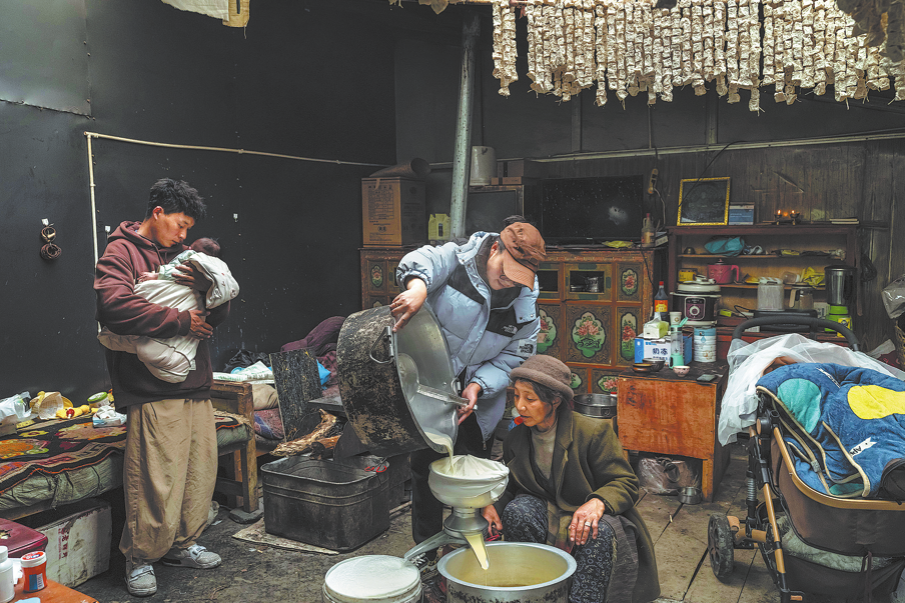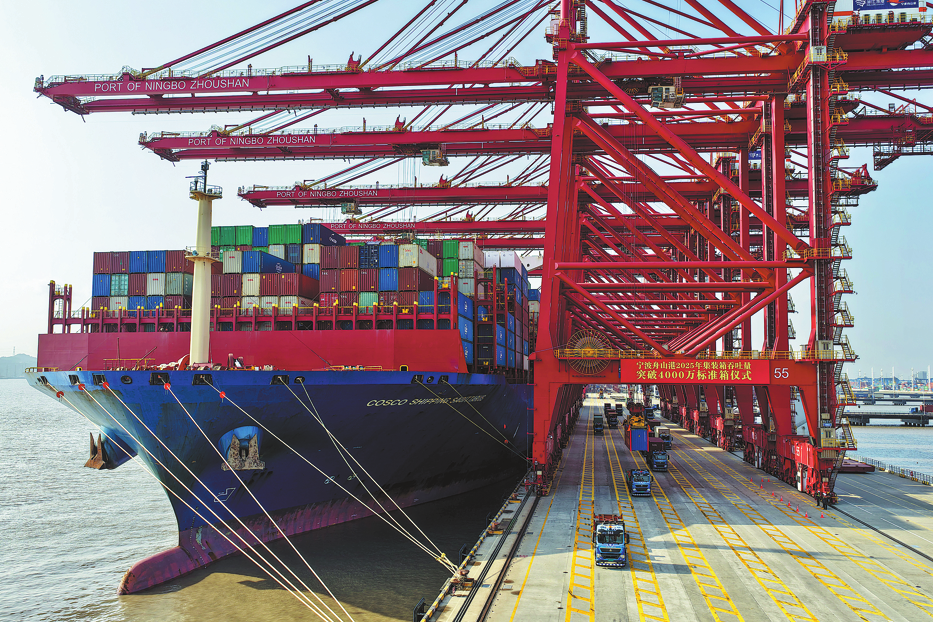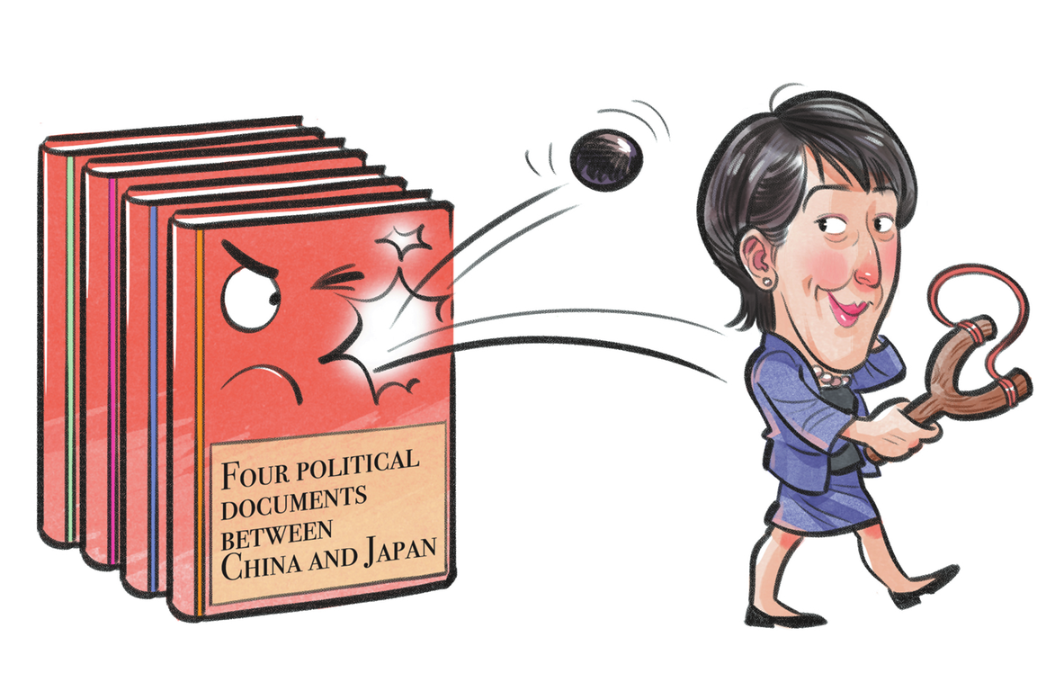CPC Guidelines for Governing Xinjiang in the New Era: Practice and Achievements
The State Council Information Office of the People's Republic of China September 2025

IV. Stronger Foundations for Stability, Peace and Security
Social stability and lasting peace and security in Xinjiang are of overarching importance to overall reform, development and stability in China. While balancing development and security, Xinjiang has maintained social stability as a top priority. It has continued to fight terrorism and maintain stability in a law-based and regular manner, preventing and defusing risks in various fields, as well as interference and sabotage by external forces. A historic transformation from chaos to stability and from stability to governance has been achieved in the region.
Significant achievements in the fight against secession. Separatism endangers national unity and undermines ethnic unity, breeding terrorism and extremism in Xinjiang. In the past, ethnic separatists, religious extremists, and terrorists have engaged in rampant sabotaging activities in Xinjiang, disrupting local stability and bringing enormous suffering to the people of all ethnic groups in the region. The Chinese government stands firm against all forms of separatism, terrorism, and extremism, and takes robust action against any acts that aim to split the country, endanger public security, or infringe upon human rights in accordance with the law.
Xinjiang is resolute in safeguarding national unity and takes robust action against illegal acts and crimes, including the incitement, organization, plotting, and execution of acts that divide the country or jeopardize national unity. It is resolute in guarding against the infiltration and spread of "Pan-Turkism" and "Pan-Islamism" and strives to root out the breeding grounds for terrorism and extremism to sprout and spread. The hard work over the years has reaped notable results in Xinjiang's fight against separatism. Violent and terrorist events have not happened for many years, and social stability and ethnic unity have been effectively safeguarded in the region.
Enforcement of regular counterterrorism measures to ensure stability in accordance with the law. This is central to sustaining long-term social stability, peace, and security in Xinjiang. Upholding and promoting the socialist rule of law, Xinjiang has exercised law-based governance in full and across all areas. In accordance with the Criminal Law and Counterterrorism Law of the People's Republic of China, it has advanced the fight against terrorism and continued to maintain stability with standardized, regular and efficient operations within the legal framework.
The autonomous region government has improved the long-term mechanism for rigorous crackdowns on violent and terrorist acts, employed law-based thinking and approaches to combat crimes and maintain stability, and ensured that these efforts were law-based, targeted, and timely. It has established a system for fighting terrorism and maintaining stability in a law-based and regular manner, and a comprehensive prevention and control system for social security, shifting the focus from the very end to the source and evolving from emergency response to a standardized, refined, and regular approach. Policies and measures have been improved to guard against the few terrorists without interrupting the normal order of work, study, and daily life of the majority of people, effecting a fundamental change more conducive to ensuring peace and stability. Since the start of the new era, counterterrorism and stability-maintaining efforts have achieved significant outcomes, bringing an end to the frequent violent and terrorist attacks seen in the past.
Targeted countermeasures against foreign sanctions and interference. In recent years, a number of Western countries, led by the United States, have imposed sanctions on businesses and individuals related to Xinjiang on the account of "genocide" and "forced labor" — lies and absurd fallacies they have concocted to interfere in China's internal affairs. Their purpose is political manipulation and economic bullying under the guise of human rights protection. Countering sanctions and interference is essential for breaking the containment of China by the anti-China forces in the US and some Western countries, which use Xinjiang as a handle. It is a just response for safeguarding our national sovereignty, security, and development interests.
China has promulgated relevant laws, regulations, and departmental rules, such as the Foreign Relations Law, the Anti-Foreign Sanctions Law, the Provisions on the Application of the Anti-Foreign Sanctions Law, and the Provisions on the Unreliable Entity List, taking countermeasures against the unjustified sanctions involving Xinjiang imposed by a mere handful of countries. The Standing Committee of the People's Congress of the Xinjiang Uygur Autonomous Region has adopted a resolution opposing a series of US sanctions on Xinjiang and supporting the development of sanctioned enterprises and related industries, fighting back against unilateral sanctions by the US. In addition, the government has provided a range of services for sanctioned businesses, supported them in safeguarding their legitimate rights and interests in accordance with the law, given a boost to relevant industries, and created new employment opportunities for people affected by the sanctions.
Notable improvements in social governance. Sound social governance is a prerequisite and guarantee for social harmony, stability, and people's wellbeing. Xinjiang has applied and further developed the Fengqiao model for community-level governance in the new era, and improved the urban and rural primary-level governance system that combines self-governance, the rule of law, and the rule of virtue under the leadership of Party organizations. The autonomous region has strengthened grassroots governance through Party development and improved the social governance system based on collaboration, participation, and common interests, consolidating the grassroots foundations. It has conducted regular risk assessment, combined with prevention, coordination, and resolution measures, to effectively forestall and defuse any potential risks or dangers.
The autonomous region government monitors and takes resolute action against illegal acts of grave concern to the public, including severe violent crimes and recurrent offences such as pornography, gambling, drug abuse, food and drug safety violations, environmental crimes, theft, robbery, and conventional, telecom, and online fraud, carrying out regular campaigns targeting criminal gangs and organized crime. It has introduced diverse ways for the resolution of conflicts and disputes by promoting law-based handling of public complaints, advancing the standardized development of integrated management centers with a focus on the county level, and created new forms of dispute resolution such as "horseback mediation teams" and "tea-serving mediation rooms". These initiatives have helped to resolve issues at the community level as soon as they arise. In 2024, 98.52 percent of civil disputes in Xinjiang were solved through mediation. The autonomous region government is firmly committed to maintaining social stability and ensuring people's safety and wellbeing. Significant progress has been made in building a peaceful Xinjiang, providing the people of all ethnic groups with a greater sense of gain, fulfillment, and security.


































